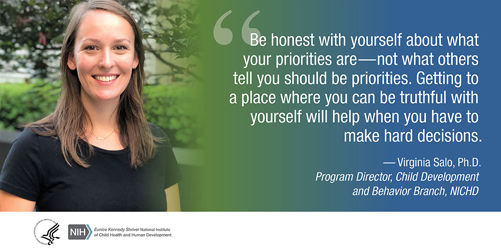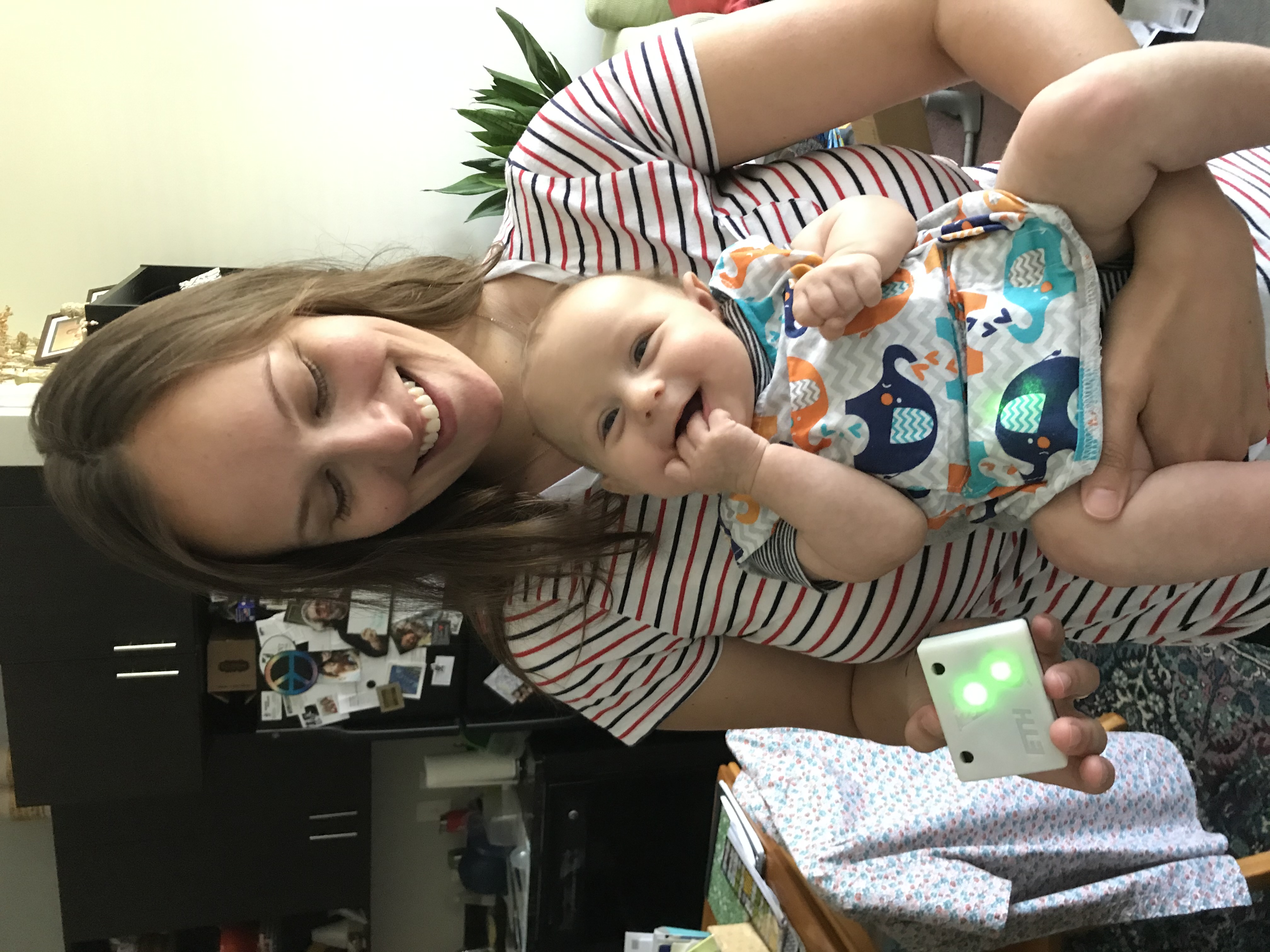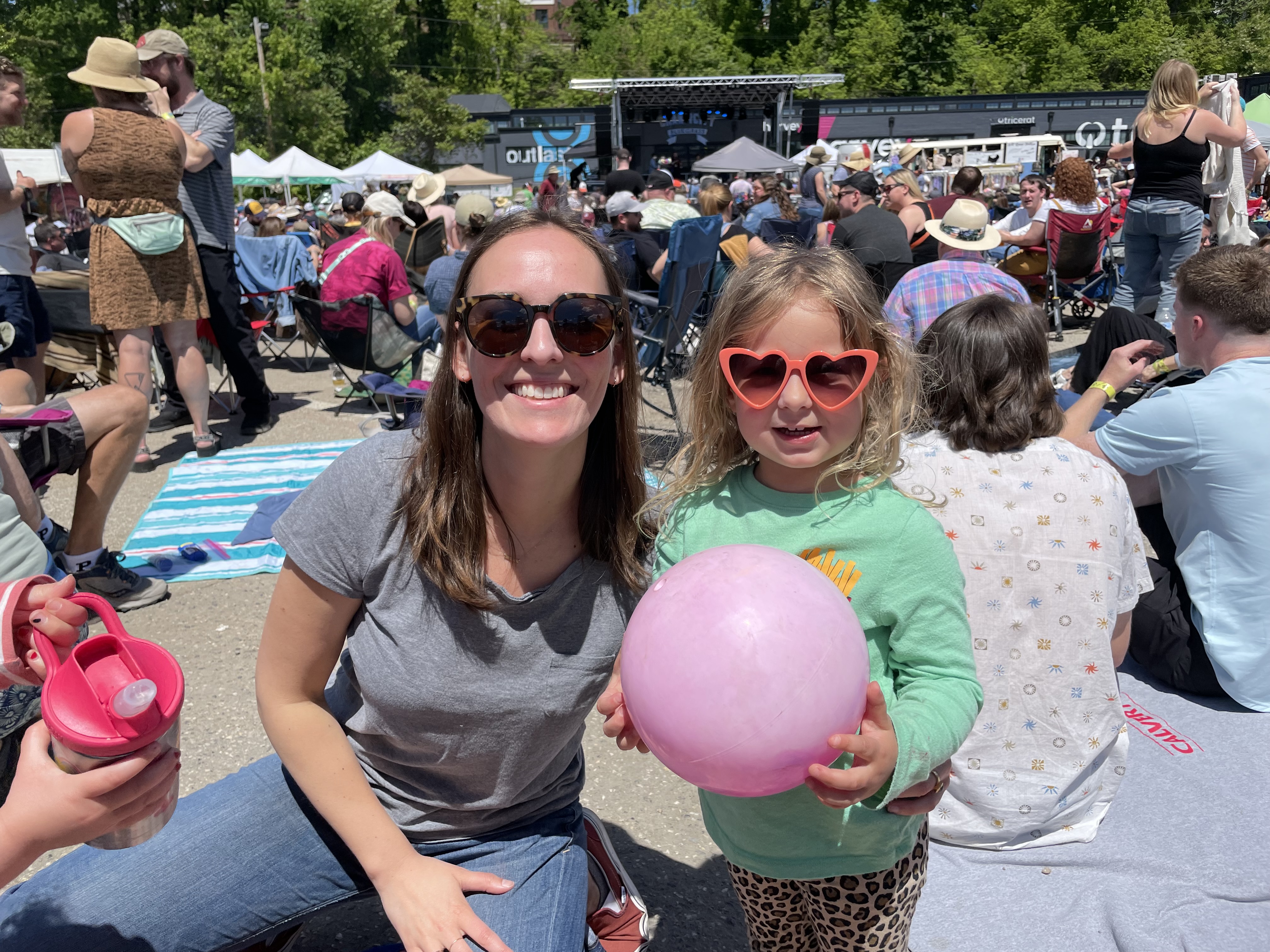What sparked your interest in research?
 As an undergraduate, I double-majored in public relations and psychology, although the communication side was my focus. But after graduating in the wake of the 2008 recession, I struggled to find engaging opportunities in public relations and decided to lean into my interest in psychology. I entered a master’s program in experimental psychology that was very research-focused.
As an undergraduate, I double-majored in public relations and psychology, although the communication side was my focus. But after graduating in the wake of the 2008 recession, I struggled to find engaging opportunities in public relations and decided to lean into my interest in psychology. I entered a master’s program in experimental psychology that was very research-focused.
The moment that I began data collection on my own project, I was hooked. I worked with preschool kids, investigating the relationship between their self-regulatory skills and vocabulary development. When I sat down to analyze data that I had collected to answer a question that I thought was fascinating and could ultimately help children, teachers, and caregivers, it was a done deal. I began applying to Ph.D. programs.
How did your focus evolve during and after your doctoral program?
Congress of Infant Studies meeting
in Philadelphia in 2018.
Credit: Virginia Salo, Ph.D.
As a doctoral student, I had to rethink my research questions because my advisor left the university in my second year. Her lab had focused on behavioral measures of language development, while my second advisor’s lab focused on the neural processes that underlie development. Thankfully, this aligned with a shift I had already begun from concentrating on language development in preschoolers to thinking about preverbal development in infancy and the internal and external factors that create the foundation for successful communication and language development.
By the end of my Ph.D., I wanted to keep building my toolbox of skills that would serve me if I were to run my own lab someday. In line with that, I began a postdoc with a new assistant professor starting her lab from scratch. My work with Kathryn Humphreys, Ph.D., at Vanderbilt University felt like a partnership. She let me in on all the highs and lows involved in starting a lab.
What brought you to your current job as a program officer at NICHD?

device to measure real-time parent-child
proximity. Dr. Salo helped develop the
device during her postdoctoral fellowship.
Credit: Virginia Salo, Ph.D.
My husband and I welcomed our daughter a day before COVID-19 lockdown began in March 2020. The resulting life changes led to considerable introspection, and as I came to the end of my postdoc, I was unsure about pursuing a tenure-track position and realized that I wanted to try something different.
I applied for a Society for Research in Child Development Policy Fellowship 
I was placed at NICHD. While I had a vague understanding of NIH, I did not quite know what to expect, and I told myself to just jump in. I did not look back, and in 2023 I joined NICHD as a program officer in the Child Development and Behavior Branch.
How would you explain what a program officer does to someone who is unfamiliar with the role?
We wear a few different hats, but mostly we serve as the liaison between the extramural world and the NIH world. We answer questions from extramural scientists, make sure that they understand the process of applying for grants, and talk about whether and how their research fits our priorities. On the NIH side, we use our scientific knowledge to set priorities and fund the science that will best move the field forward to inform better outcomes for the communities we serve.
Do you find ways to use your communications background in your current work?
Being a good communicator is at the core of much of what I do as a program officer. I speak with grant applicants all the time about how to address key questions like “What is the story you are trying to tell? What is the impact that your science can have?” Another role of mine is advocating for the science that we fund. Telling the story about the importance and impact of our science is something that I think about daily.
What are your long-term goals for your work at NICHD?
The child development field has answered a lot of fundamental questions, but with findings often reflecting the experiences of only select populations. We need to ask more nuanced questions about how processes are different across and within different populations. We cannot assume one size fits all. How can we expand upon our current knowledge in ways that will help us meet the needs of the changing populations in our country and the world? If I can come away having done something to improve understanding of the nuances of and contextual differences that shape child development, I will feel accomplished.
What advice would you give people at an earlier stage of their career?
Be honest with yourself about what your priorities are, not what others tell you should be priorities. Getting to a place where you can be truthful with yourself will help when you have to make hard decisions. But understand that every decision that you make has pros and cons. There will always be tradeoffs, so it helps to go into those moments knowing what is truly important to you.
To guide my decision making, I always start by asking myself, “Do I like what I'm doing? Do I want to keep doing more of it, or do I want to do something different?” This has served me well, but transitions still can be tough. Everything I have done has been challenging in different ways, but those challenges are necessary for the growth that I hold as a high priority for myself.
As a child development expert and parent, how do you find work-life balance?

Bluegrass Music Festival in April 2023.
Credit: Virginia Salo, Ph.D.
Given that my vocation is thinking about kids and their development, it is sometimes hard to put up boundaries. But I really cannot both be with my daughter, who is almost 4, and be thinking about work, because she is all-encompassing in the most wonderful and challenging way. And so is my work.
Yoga helps keep me sane. I have been practicing since college, although I was more consistent before having a child. But I am finding ways to carve out dedicated time for it. We have also found ways to include our daughter into our hobbies. She loves going to concerts and music festivals just as much as my husband and I do.
What do you consider your greatest personal achievement?
My daughter is 100% my greatest achievement. It has been such a privilege to get to watch her grow and to help her navigate the world. Even if I accomplish nothing else in the sciences, I am putting my degree to work in one person, and I know that she is going to make the world better. That makes me delighted every day.
Return to Get to Know NICHD.
 BACK TO TOP
BACK TO TOP